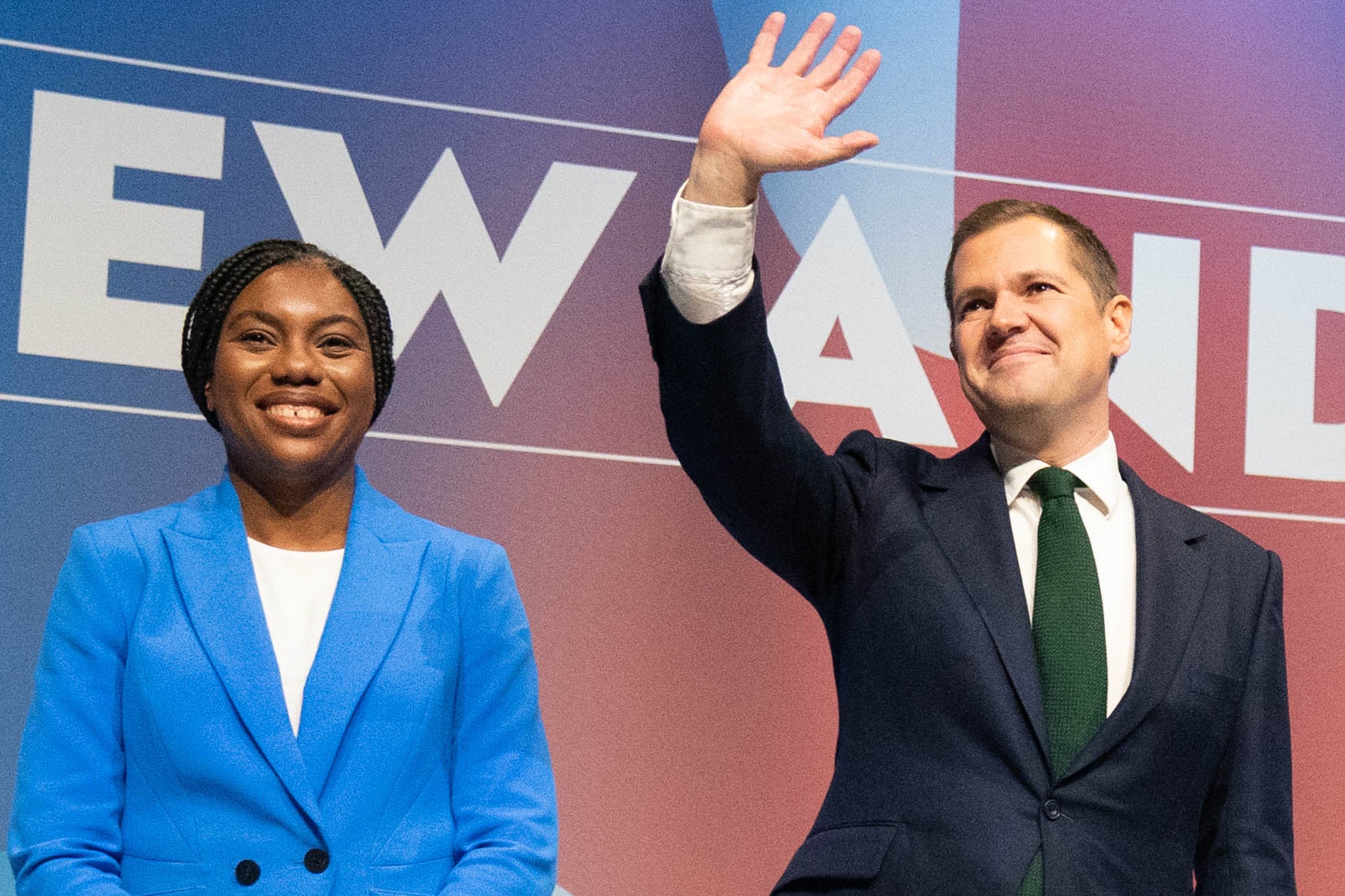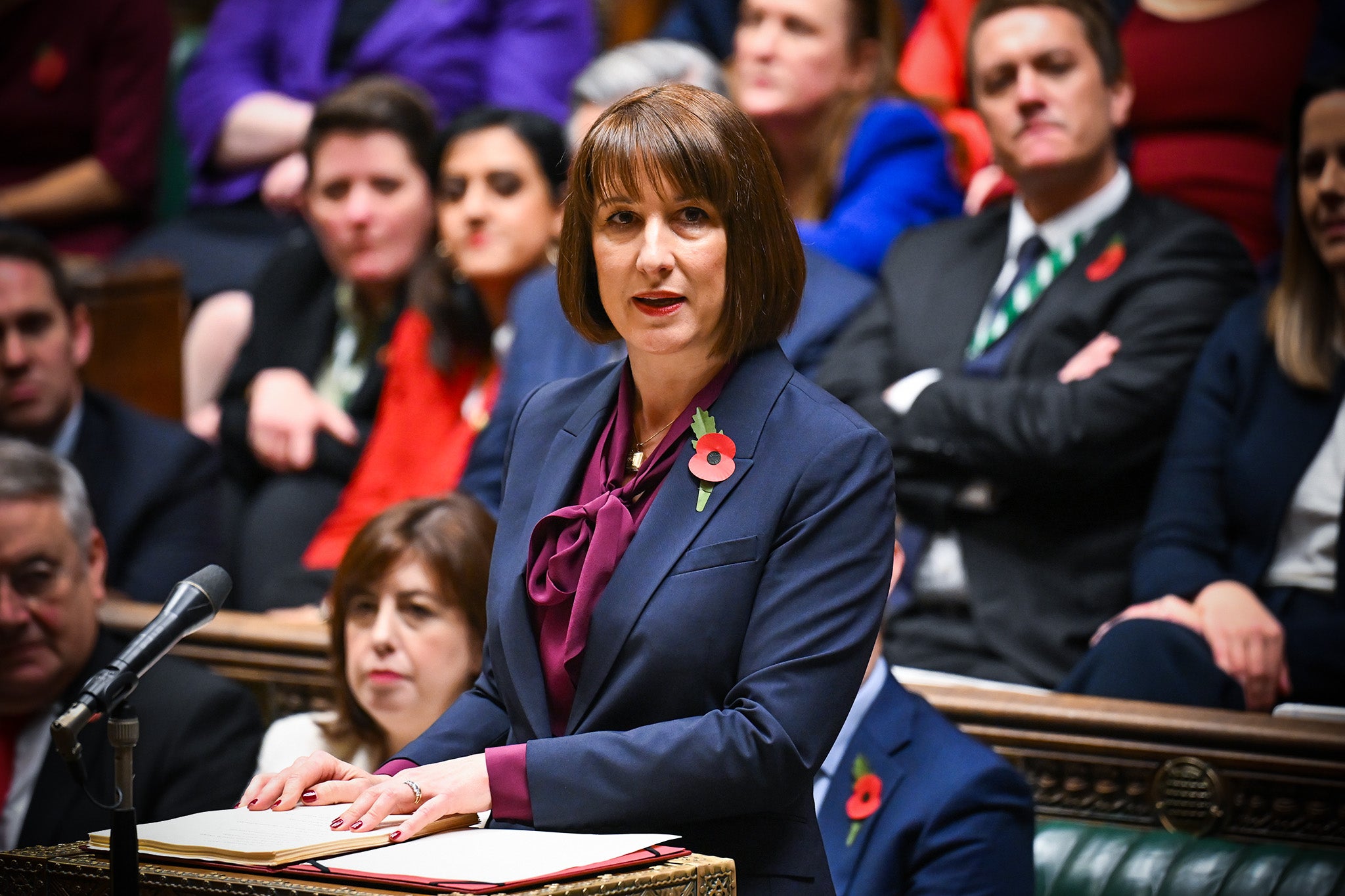Leaderless Tories can’t comment on biggest Budget for three decades
The Tories said the party wouldn’t be making detailed comments on the fiscal event
Your support helps us to tell the story
From reproductive rights to climate change to Big Tech, The Independent is on the ground when the story is developing. Whether it's investigating the financials of Elon Musk's pro-Trump PAC or producing our latest documentary, 'The A Word', which shines a light on the American women fighting for reproductive rights, we know how important it is to parse out the facts from the messaging.
At such a critical moment in US history, we need reporters on the ground. Your donation allows us to keep sending journalists to speak to both sides of the story.
The Independent is trusted by Americans across the entire political spectrum. And unlike many other quality news outlets, we choose not to lock Americans out of our reporting and analysis with paywalls. We believe quality journalism should be available to everyone, paid for by those who can afford it.
Your support makes all the difference.The Conservative Party has left itself unable to make any significant comments on Labour’s first Budget, as a consequence of its unfinished leadership race.
Speaking to journalists after Wednesday’s Budget, a Conservative spokesperson said they wouldn’t be making detailed comments on the fiscal event – which saw the most significant tax rises in any Budget since 1993 – as a result of the ongoing leadership election.
The contest will draw to a close on Saturday, with either Robert Jenrick or rival Kemi Badenoch being crowned the winner - the timing of which means the party is unable to properly criticise the first Labour Budget for 14 years, which saw chancellor Rachel Reeves unveil £40bn worth of tax rises.
Referring to the two contenders, the spokesperson said: “I haven’t spoken to either of them about it and I don’t want to get into committing them to things that we need time to think through.”
While the official spokesperson offered a few broad remarks on the fiscal statement, saying the party “wouldn’t have spent as much” and “would have made bigger savings on welfare”, they declined to offer any further commentary.

In the early stages of the race, Mr Jenrick urged the party to end the race early to ensure a new leader was in place to scrutinise Labour’s Budget.
But 1922 committee chair Bob Blackman, overseeing the contest, dismissed the demands emphasising the importance of maintaining the current schedule to ensure all party members have enough time to cast their votes.
Rishi Sunak weighed in on the Budget in the House of Commons, criticising the government for embarking on an “enormous borrowing spree”. But, as the outgoing opposition leader, he will soon be retreating to the backbenches where he will have limited influence on party policy.
The two potential future leaders later made their own separate statements, with Ms Badenoch calling it a Budget of “higher taxes, more borrowing and lower growth”.
She added: “Labour had 14 years in opposition to think about what they should do with the economy and this is what we get.
“We Conservatives cannot afford to make the same mistake. We need to return to principles and spend our time out of government building a plan that will rewire the state, bring down taxes and reward the risk-takers and the entrepreneurs who create jobs and fuel economic growth.”

Mr Jenrick called Ms Reeves the “gloom and bust” chancellor, adding: “This Budget completes the biggest heist in modern history.
“Labour promised not to raise taxes, but this £40 billion tax hike amounts to a £1,400 bill for every household. The British public are right to be furious that they were brazenly lied to.
“No Budget in recent memory has hiked the taxes of the British people more. Labour’s recipe of taxing, spending and borrowing more has caused the OBR to downgrade growth to among its lowest levels for decades.”
After months spent warning the public of “tough choices” ahead, Ms Reeves used her Budget to promise to “invest, invest, invest” in order to “fix public services” and announce a £22.6 billion increase in the day-to-day NHS health Budget.
Increases to employers’ national insurance contributions, stamp duty on second homes and a scrapping of the VAT exemption on private school fees were all confirmed by the chancellor, as well as a new duty on vaping liquids.
Introduced as the chancellor attempts to grapple with a £22bn black hole in the public finances, the tax hikes represent the biggest rise in cash terms in any Budget.
Adjusted for inflation, it would be beaten by Norman Lamont’s £38.5 billion tax-raising Budget in 1993, which increased taxes to shore up the public finances after a recession and currency crisis.
However, there were surprise announcements that the freeze on income tax thresholds, often described as a “stealth tax”, would not be extended past 2028, while Ms Reeves has also decided against a hike in fuel duty.

Join our commenting forum
Join thought-provoking conversations, follow other Independent readers and see their replies
Comments